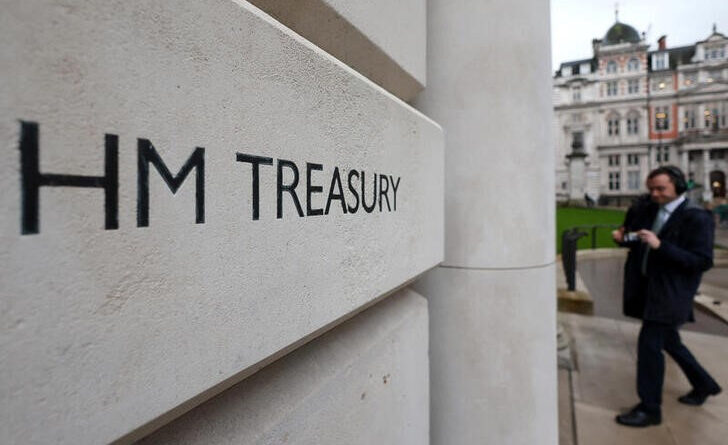Next Government to Assume Highest Debt Level in Over 60 Years
According to ONS data, borrowing in May was lower than anticipated, but it was not enough to prevent the level of debt from reaching its highest point since March 1961.
The upcoming government will be facing the highest national debt level in over 60 years, despite the lower borrowing in May, as per official estimates released on Friday by the Office for National Statistics (ONS). Both major parties have pledged to reduce the debt ahead of the general election on July 4.
In May, the public sector spending exceeded the income by £15 billion, surpassing the borrowing in May 2023 by £0.8 billion and marking the third-highest May borrowing since records began in 1993.
However, the borrowing was £0.6 billion below forecasts from the Office for Budget Responsibility (OBR) and was also lower than economists’ predictions.
Total public sector spending in May amounted to £100.1 billion, an increase of £2.3 billion from May 2023. Central government spending rose by £2.8 billion in the year ending May 2024, reaching £91.6 billion.
The increase in spending was driven by higher net social benefits, inflated running costs, and a £0.2 billion increase in interest payable on central government debt. This was mitigated by a £1.1 billion reduction in subsidies due to the termination of energy support schemes.
Public sector receipts, primarily taxes, amounted to £85.1 billion, exceeding May 2023 by £1.5 billion.
Between April and May, borrowing totaled £33.5 billion, an increase of £0.4 billion compared to the same period in 2023 and £1.5 billion lower than OBR forecasts.
Despite this, public sector net debt excluding public sector banks rose to £2.77 trillion by the end of May, equivalent to 99.8% of the economy according to ONS estimates based on OBR’s GDP forecasts. This marks a 3.7% increase from the previous May and the highest level since March 1961.
With less than two weeks remaining before the general election, the continuous rise in debt levels poses a significant challenge for the incoming government.
Economist Thomas Pugh from RSM UK noted that the lower borrowing in May might provide some relief for the new government but given the impending fiscal squeeze, additional tax measures or borrowing might be necessary to address the situation.
Consultants at Capital Economics pointed out that the lower-than-expected borrowing figures reflect reduced public investment and do little to alleviate the fiscal challenges awaiting the next chancellor.
Both Labour and the Conservatives have committed to maintaining existing budget rules requiring a decrease in debt as a percentage of GDP over the forecast period, with forecasted higher interest rates putting pressure on these rules.
Despite pledges not to increase major taxes, government budget projections indicate a potential rise in tax as a share of GDP, signaling a complex financial landscape for the incoming government.
PA and Reuters contributed to this report.





